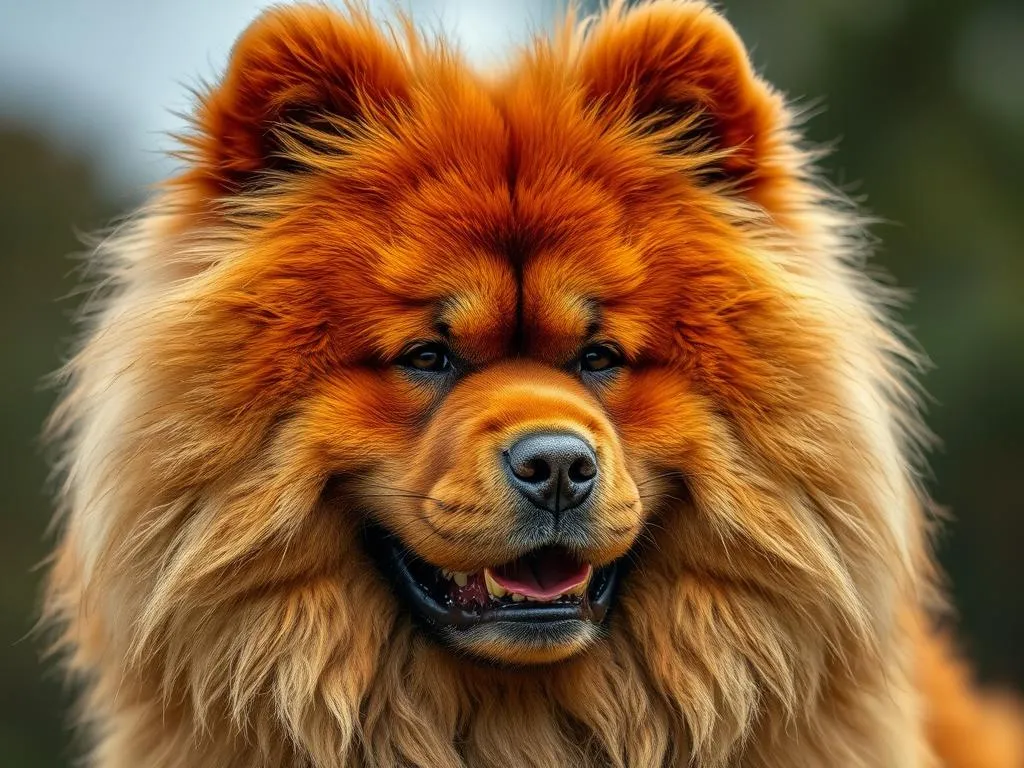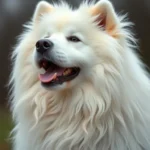
Introduction
The world of dog breeds is diverse and captivating, with each breed boasting unique traits, histories, and personalities that cater to various lifestyles and preferences. Among these breeds, the Chow Chow stands out as a distinctive and ancient companion, famed for its lion-like appearance and unique blue-black tongue. Originating from China, Chow Chows have a rich history intertwined with cultural significance, making them a breed worth exploring in depth.
In this article, we will delve into the fascinating world of Chow Chows, covering their origins, physical characteristics, temperament, care requirements, training needs, health considerations, and suitability as family pets. By the end, you’ll have a comprehensive understanding of what it means to own a Chow Chow and whether this breed is the right fit for you.
Understanding Dog Breeds
What is a Dog Breed?
A dog breed is a specific group of domestic dogs that share certain physical characteristics, behaviors, and lineage. Breeds are often developed through selective breeding to fulfill specific roles, such as herding livestock, hunting, or serving as companions. Understanding dog breeds is crucial for prospective pet owners, as it helps them choose a dog that matches their lifestyle and preferences.
Factors Influencing Dog Breeds
Several factors influence the development and characteristics of dog breeds:
- Genetic Factors and Lineage: The genetic makeup of a breed determines its physical traits and temperament. Breeders select for desirable traits, shaping the breed over generations.
- Environmental Influences: The environment in which a breed develops can affect its behavior and physical characteristics. For example, breeds developed in colder climates may have thicker coats.
- Purpose and Function: Many breeds are designed for specific tasks, such as working dogs, herding dogs, or companion animals. The purpose influences their behavior, energy levels, and training needs.
Overview of the Chow Chow
History and Origin
The Chow Chow is one of the oldest dog breeds, with origins tracing back over 2,000 years in China. Initially bred for various purposes, including guarding, pulling sleds, and as a source of food, the Chow Chow has deep roots in Chinese culture. They were often seen in imperial palaces and served as symbols of prestige and loyalty. The breed’s name is derived from the Cantonese word “chow,” which refers to food, highlighting their historical significance as both companions and sustenance.
Physical Characteristics
Chow Chows are easily recognizable due to their unique physical features:
- Size and Weight: Adult Chow Chows typically weigh between 45 to 70 pounds and stand about 18 to 22 inches tall at the shoulder.
- Distinctive Features: One of the most notable characteristics of the Chow Chow is its blue-black tongue, a rare trait among dog breeds. They also have a lion-like mane around their neck, giving them a majestic appearance.
- Coat Types and Colors: Chow Chows have a dense double coat that can be either rough or smooth. Their coat colors range from red, black, blue, cinnamon, and cream, with the rough coat being more common.
Temperament and Behavior
The temperament of a Chow Chow can be described as aloof, loyal, and independent. Here are some key traits:
- General Temperament Traits: Chow Chows are known for their calm demeanor and protective nature. They can be reserved around strangers but are fiercely loyal to their families.
- Social Behavior: While they can be affectionate with their owners, Chow Chows may not be as openly social with other animals or unfamiliar people. Early socialization is crucial to help them develop a well-rounded personality.
- Common Behavioral Quirks: Some Chow Chows can display stubbornness, which may pose challenges during training. Their independent nature means they may not always seek approval from their owners.
Chow Chow Care Requirements
Nutrition
Providing the right nutrition is essential for maintaining the health and vitality of your Chow Chow:
- Recommended Diet: A high-quality dog food tailored for medium to large breeds is ideal. Look for options that list meat as the primary ingredient.
- Common Dietary Restrictions: Chow Chows can be prone to obesity, so portion control is vital. Additionally, they may have sensitivities to certain grains, so a grain-free option may be beneficial.
- Importance of Hydration: Ensure fresh water is available at all times, especially in warmer weather, as Chow Chows can be susceptible to heat.
Exercise Needs
While Chow Chows are not overly energetic, they still require regular exercise:
- Recommended Exercise Routines: Aim for daily walks and playtime, ideally around 30-60 minutes of activity. This helps keep them physically and mentally stimulated.
- Importance of Mental Stimulation: Engage your Chow Chow with puzzle toys or training exercises to prevent boredom and behavioral issues.
- Risks of Over-Exercising: Be cautious during hot weather, as Chow Chows can overheat easily due to their thick coats.
Grooming and Maintenance
Proper grooming is crucial for a Chow Chow:
- Grooming Frequency: Chow Chows should be brushed at least once a week, with more frequent brushing during shedding seasons to manage loose fur.
- Specific Coat Needs: The rough coat requires regular grooming to prevent matting, while the smooth coat needs less maintenance.
- Health Check-Ups: Regular veterinary check-ups are important to monitor health and catch any potential issues early.
Training a Chow Chow
Early Socialization
Early socialization is vital for Chow Chows to develop into well-adjusted adults:
- Importance of Early Exposure: Introduce your Chow Chow to various environments, people, and other animals during their critical developmental period.
- Recommended Socialization Practices: Puppy classes can be beneficial, providing a safe space for your Chow Chow to interact with other dogs and people.
Obedience Training
Training a Chow Chow can be both rewarding and challenging:
- Techniques for Training: Utilize positive reinforcement techniques, such as treats and praise, to encourage desired behaviors.
- Common Challenges: Their independent nature can lead to stubbornness. Be patient and consistent in your training approach.
- Tools and Resources: Consider using training classes or online resources to enhance your training experience.
Behavioral Issues
Like any breed, Chow Chows can face behavioral challenges:
- Common Behavioral Problems: Issues such as aggression toward strangers or other dogs can arise if not properly socialized.
- Solutions and Preventive Measures: Consistent training and socialization, combined with positive reinforcement, can help mitigate these problems.
Health Considerations
Common Health Issues
Being aware of potential health issues is essential for Chow Chow owners:
- Hereditary Health Problems: Common conditions include hip dysplasia, elbow dysplasia, and certain eye problems like entropion.
- Signs and Symptoms: Watch for signs of discomfort, changes in appetite, or unusual behaviors, and consult a vet if concerns arise.
Preventive Care
Preventive care plays a significant role in ensuring your Chow Chow remains healthy:
- Importance of Regular Vet Visits: Routine check-ups can help catch health issues early and maintain vaccinations.
- Vaccination Schedules: Follow your veterinarian’s recommendations for vaccinations and parasite control to keep your Chow Chow protected.
Lifespan and Aging
The average lifespan of a Chow Chow is typically around 8-12 years. As they age, they may require special care:
- Care Considerations for Aging Chow Chows: Older Chow Chows may slow down and require adjustments in their exercise routine, as well as dietary changes to accommodate their health needs.
Chow Chows as Family Pets
Suitability for Different Families
Chow Chows can be excellent family pets, but there are some considerations:
- Ideal Living Conditions: They thrive in homes with space to move around, making them better suited for families with yards.
- Compatibility with Children and Other Pets: Chow Chows can be affectionate with children but may be reserved with other pets, so supervision is necessary during interactions.
Adoption and Breeding
If you’re considering bringing a Chow Chow into your home, here are important factors:
- Considerations When Adopting: Look for reputable shelters or rescues that can provide information about the dog’s history and temperament.
- Reputable Breeders: If opting for a breeder, ensure they prioritize health testing and responsible breeding practices to minimize the risk of hereditary issues.
Conclusion
In summary, Chow Chows are a unique and regal breed with a rich history and distinct characteristics. Their aloof but loyal nature, combined with specific care requirements, makes them a rewarding companion for the right owner. Understanding their needs for nutrition, exercise, grooming, and training is essential to ensure a happy and fulfilling life together.
Owning a Chow Chow can be a joy, but it also requires commitment and awareness of their unique traits and potential challenges. By carefully considering your lifestyle and the specific needs of a Chow Chow, you can create a loving and enriching environment for your new furry friend.









